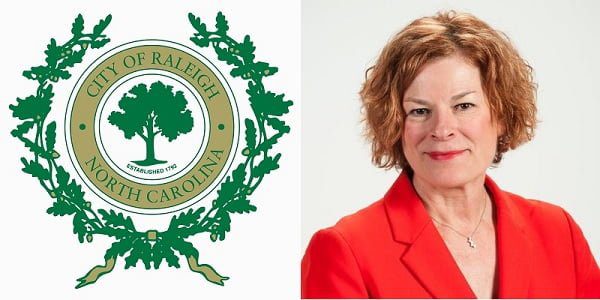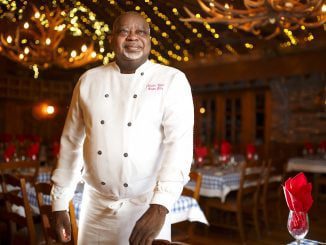
RALEIGH — Longtime city council member Mary-Ann Baldwin has won the 2019 Raleigh mayoral race after her closest opponent, Charles Francis, chose not to pursue a runoff following the Oct. 8 initial round of voting. Unofficial results showed Baldwin leading Francis by 7 points — 38% to 31% — in the six-person contest. Francis announced his decision to concede the race in an Oct. 11 statement.
“After reviewing the results and analyzing a runoff race, I have concluded that the path to a runoff victory … would require an additional several hundred thousand dollars — more resources than available for an election just three weeks away,” Francis said in the statement. “Therefore, though there was no clear mandate in the Mayor’s race for any candidate, I will not call for a runoff.”
The next day, Baldwin tweeted to thank her supporters, which included Nancy McFarlane, Raleigh’s mayor since 2011. “TY [thank you] to everyone who voted in this #ralpol election and all the candidates who ran,” she said.
Francis lost to McFarlane in a 2017 runoff after a similar second-place finish. Francis told NSJ, after an August debate, that McFarlane’s decision to give up the seat left him in a good position, saying, “We almost won, and this time that incumbent decided not to run. So we have an open seat.”
According to Francis, this year was a “change election,” and he believed voters would see Baldwin as part of the problem after her decade on the city council.
“One of my opponents talks a lot about her 10 years in office, so I think if you’re basically satisfied with the way things are, then that might be impressive to you,” Francis told NSJ.
Baldwin, on the other hand, sought to paint her long tenure on the Raleigh City Council — five two-year terms — as a major strength.
“Here’s the thing, when I first got on the city council, I thought I knew a lot about government,” Baldwin told NSJ. “There’s a really sharp learning curve. You don’t know the budget — you don’t even know where the bathrooms are — and all of a sudden, you’re running a city. And I think one of the attributes that I bring to this race is the fact that I’ve been there, I know the issues, I know the budget, I know the staff, I know who to go to to get things done.”
According to Baldwin, there will be a yearlong learning curve, at least, and she said they did not have the luxury to wait that long for someone to become comfortable as mayor.
“I just don’t think we have a year to wait for somebody to learn government,” Baldwin said. “I think we’re in this critical state of urgency right now where we have to get moving on things and get some things done.”
With multiple city council members losing their seats, Francis’ claim that it was a “change election” was born out. But after Baldwin spent considerable energy distancing herself from the city council’s decisions, especially around housing and zoning issues, the voters did not punish Baldwin for her own time on the council.
“The big thing I’m really focused on is housing affordability, and that was something I focused on when I was in the council before,” Baldwin told NSJ. “It’s getting worse instead of better. Part of that is just a supply and demand issue. Part of it is a property rights issue.”
She said the Raleigh City Council was creating obstacles to growth by doing things like banning residents from renting their homes on Airbnb and forcing developers to put affordable housing in every project they build in the city.
“Under this council, there is just no predictability,” Baldwin said. “We are somewhere that’s known for being difficult to do business, and developers are leaving Raleigh and going to Durham and other places because they don’t like the unpredictability of what could happen. So when you’re going through a zoning case, you don’t know what’s going to happen. You could spend hundreds of thousands of dollars.”
Now with the mayor’s office and four new members on the eight-person city council, Baldwin hopes for some latitude to change how residents and developers experience issues around zoning and housing affordability. Her second tweet, after the one thanking her supporters, showed her continued focus on property prices and regulations.
“Some lessons here for #ralpol Are you ready? #housingAffordability,” Baldwin said, linking to an article from Urban Land Magazine about how Boston’s “smarter zoning choices” could stimulate growth in the Massachusetts city.


